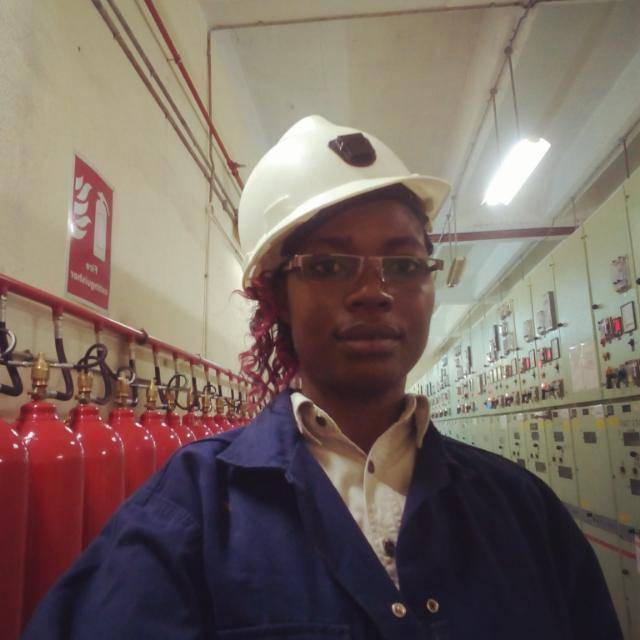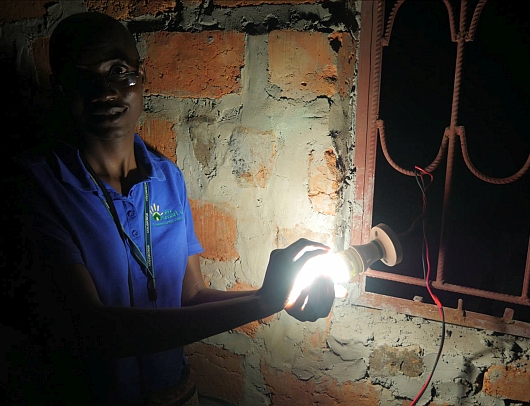Our stories
“If you don't like someone's story, write your own”, Chinua Achebe, Nigerian born Novelist
Chinua Achebe
“If you don't like someone's story, write your own”
At this game-changing moment in world affairs, where women are finding their voices, MyZambia MyAfrica encourages more women to step out into the public arena and use their power to make a difference in their local communities across the African Continent.
Countries from Georgia to Ethiopia have recently elected their first female Presidents. The African-American Democratic Party leading light Ms. Stacey Abrams drew a line in the sand when she squelched at the idea of running for Vice President with the refreshing riposte: “You don’t run for second place.”
In June 2016, the outcome of the United Kingdom (UK) referendum to exit the European Union (Brexit), shocked global markets and descended the UK into a maze of political and economic uncertainty. The leadership of the British Prime Minister Mrs. Theresa May has been challenged and tested over Brexit. She left Number 10 Downing Street at the end of July, 2019 and she was replaced by colourful Mr. Boris Johnson as Britain’s next Prime Minister. As the great grand-daughter of Mwenzi Mwanza, the first-known and last female Chief of Mzenje Village in Petauke, Eastern Province of Zambia, I am no stranger to women taking charge of their own affairs.
Mwenzi was taken into slavery with her husband, 3 young sons, her older sister, brother-in-law and their children into what is believed to be present-day Malawi.
Her brother, Kampango, the sitting Chief of Mzenje Village was slain during the raid, along with the other men of age. After several years, Mwenzi escaped from slavery, taking advantage of a raid on her captors by what she described as a European army.
The unexpected chaos was a perfect catalyst for reshaping her destiny and defining her legacy. Using whatever resources at her disposal, she walked through dangerous terrain back to her Village with only her youngest son, Kalengo. The year would have been around 1898.
By the time freedom came, she had been separated from her 2 eldest sons, sister and the rest of her extended family. She never saw them again. What happened to each of them remains unknown. What is undisputed is that there was an established Arab slave trade in the region which supplied labour to the exotic island of Zanzibar which lies off the east coast of present-day Tanzania. In addition, the pernicious Portuguese slave trade was also at its height.
Upon her return to her Village, Mwenzi took her rightful place as Chief as there were no surviving male heirs. Mwenzi quickly remarried and bore children with her second husband. 6 of their children survived into adulthood. Her first son from her second marriage, Kampango was born in 1900. This date is not disputed. Nobody seems to remember what happened to her youngest son, Kalengo, but it is believed that he did not live long once he returned to the Village.
This story was first narrated to my father, Dr. Chad Kampango Kawamba by his late mother, in Lusaka, Zambia in 1985. He was 41 years old at the time. My father named his first born son Kampango. Mwenzi successfully ruled until her death in 1936. Her son Kampango succeeded his mother and briefly ruled until 1944, the year that my own father was born. I first learned about the life of Mwenzi when I read my father’s memoirs during a holiday to Lusaka in 2002. Less than 3 months before I got married, I visited Zanzibar in 2012 with my then-fiancé. I experienced an unexpected and conflicted intense emotional connection to the beautiful spice island. Mwenzi’s son was the last Chief in my family. A different family has ruled Mzenje Village since 1944.
Most of the members of my paternal family are direct descendants of Mwenzi. The narrative that relates to Mwenzi is that she was a woman of small stature who seemed rather ordinary, but she was catapulted into extraordinary events.
Approximately, 800 kilo meters from Petauke, is Kaoma, in Western Zambia where a very different young woman has stepped into the public arena. We recently had the pleasure of interviewing the inspirational Likonge Mulenga, as part of a series of writings on African women, soon to be published, to celebrate Zambia’s 55th year of independence from Britain.
Likonge is currently working at Konkola Copper Mines Plc (KCM), as Manager of Electrical and Instrumentation. KCM is one of Africa’s largest integrated Copper producers. It is a subsidiary of Vedanta Resources Plc, one of the world’s largest diversified natural resources companies. Since her early schooling, Likonge demonstrated a natural talent for Science and Mathematics. Until the age of 18, she lived and studied in rural or semi-rural areas which were not electrified, so she has first-hand experience of the harsh realities of living without access to reliable Energy.
Likonge is the founder of Light up Zambia, a non-profit which provides off-grid Clean Energy to people living in rural areas. There is a focus on empowering youth and women in education and agriculture. Her vision for Light Up Zambia complements Zambia’s Seventh National Development Plan (7NDP), which promotes the use of Clean Energy as strategies for increasing access to Energy in rural areas, lowering tariffs, and diversifying the supply. To date, Light up Zambia has made a positive impact on the lives of more than 1,000 people. Over 500 people have access to media outlets, including radio and television. Likonge has employed 2 staff and sponsored the education of 2 teenage girls who are now in secondary school and excelling.
Over a dozen (cell) mobile phones are charged daily at 1 Energy kiosk, which generates a modest income for the venture. The kiosk also supplies household groceries, which provides easier access to supplies, eliminating the need for women to travel over 23 kilo meters to buy groceries. A hair and beauty salon now thrives at the kiosk because of access to Energy.
Likonge has recently been honoured by the Engineering Institute of Zambia as an Engineering Fellow. She is one of the few women to achieve this milestone. As ever, she remains unpretentious. Likonge’s inspirational life speaks to two truths. Firstly, it is a testimony that nothing is more powerful than servant leadership. Secondly, that women are usually the gentle turbine hiding in plain sight, keeping the spinning mill of economic development in motion in their local communities, without pageantry or recognition.
Today, Likonge has a young daughter, Chilufya, who has also demonstrated a natural flair for Science, Technology, Engineering and Mathematics. To her parent’s delight, Chilufya aspires to be a brain surgeon. Likonge’s advice to Chilufiya is always think beyond what you are told and to never give up. “We do not just risk repeating history if we sweep it under the carpet, we also risk being myopic about our present“, Chimamanda Ngozi Adichie, Nigerian born Writer and feminist.
Author: Leya Kawamba, MyZambia MyAfrica
First published: 1 September, 2019




